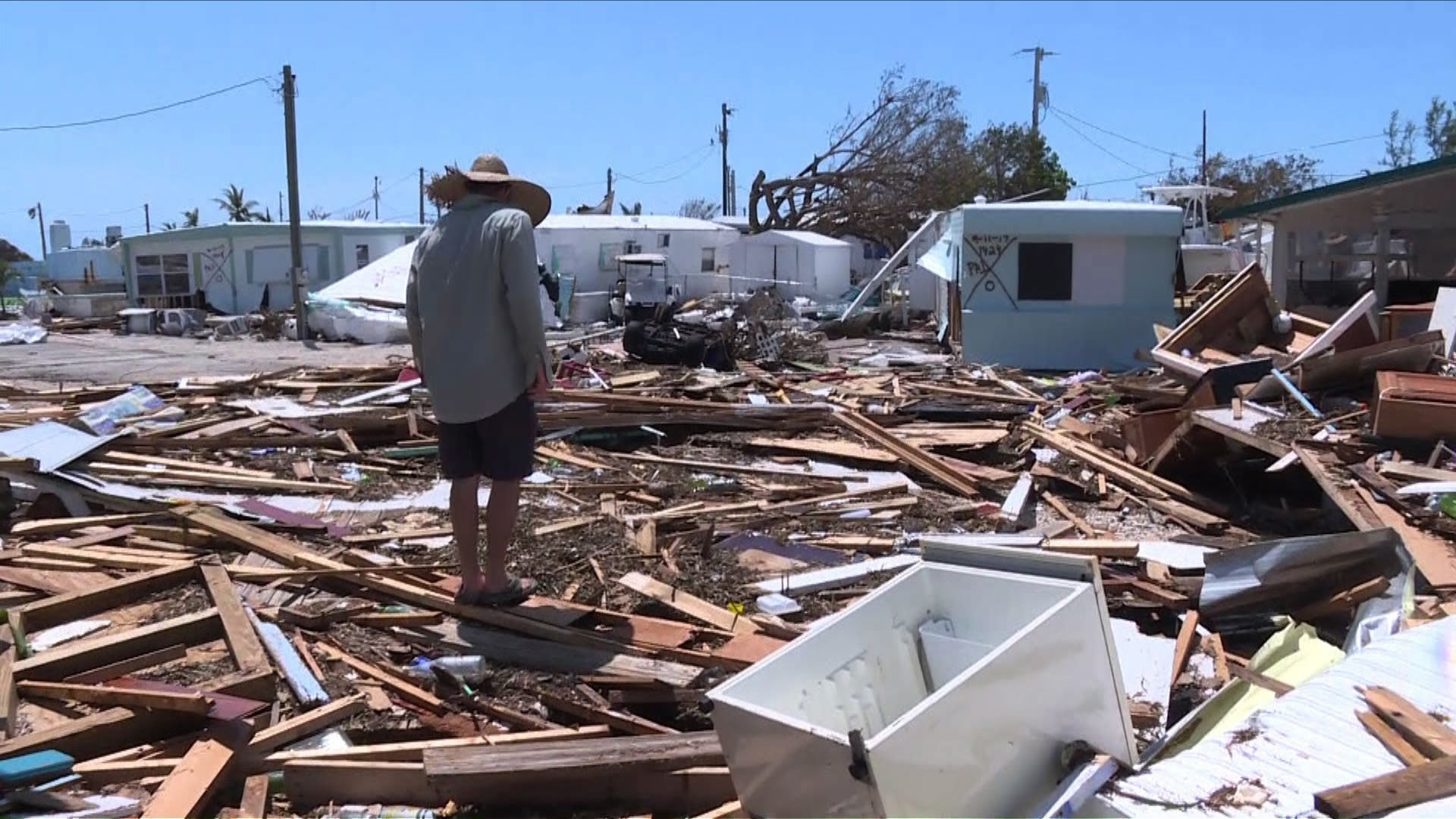
World
16:28, 20-Sep-2017
2017 Atlantic Hurricane Season: it is not done yet
CGTN

The Atlantic hurricane season officially runs from June 1 to November 30. During this period, it's expected for the Atlantic to experience a range of dangerous weather, including torrential rains and gale force winds which, in turn, create floods and cause blackouts.
According to National Oceanic and Atmospheric Administration (NOAA), as of September 19, the Atlantic has experienced 13 named systems - Arlene, Bret, Cindy, Don, Emily, Franklin, Gert, Harvey, Irma, Jose, Katia, Lee and Maria - of which five have been hurricanes. In 2016, the total named storms formed in the Atlantic Basin was 15, including seven hurricanes. So, while it seems that the 2017 season has peaked in the middle of September, it is still far from over.
Here’s a recap of the four major named hurricanes brewing in the Atlantic:-
On August 25, Hurricane Harvey made landfall as a Category 4 hurricane and flooded parts of Texas and Louisiana. According to the US National Hurricane Center (NHC), Harvey was graded a category 4 when it made landfall in Port Aransas, Texas. By the time it hit Houston, it was downgraded to a category 1. Hurricane Harvey killed at least 60 people, and caused billions of dollars in damage.
A week after Harvey’s strike, Hurricane Irma hit with sustained winds of up to 295km/h (185mph) and cut a catastrophic path across Caribbean countries. Hurricane Irma has killed at least 69 people across the state of Florida and also caused billions of dollars in damage.
Hurricane Jose will impact the coast of the northeastern U.S. for much of the week from September 18. As of Monday, Hurricane Jose has maximum sustained wind speeds of 120km/h (75mph) and a dangerous surf expected to continue along the east coast of the United States, according to the NHC.
Meanwhile, Hurricane Maria makes landfall in Dominica as a category 5 hurricane, the highest classification, reported the NHC. The storm touched down around 01:15 GMT on Tuesday (Sep. 19th) with maximum sustained wind speeds of 260km/h (160mph).
It is said that hurricanes are the most violent storms on Earth, and questions are frequently asked regarding the connection between global warming and hurricanes.
According to studies by Geophysical Fluid Dynamics Laboratory, “it is likely that greenhouse warming will cause hurricanes in the coming century to be more intense globally and have higher rainfall rates than present-day hurricanes.” But, "Are we to blame?" is the question we may find ourselves asking when disasters strike.
Source(s): AP
,AFP

SITEMAP
Copyright © 2018 CGTN. Beijing ICP prepared NO.16065310-3
Copyright © 2018 CGTN. Beijing ICP prepared NO.16065310-3